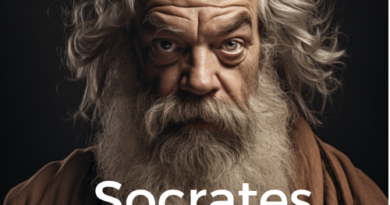Critical Thinking and Curiosity
Critical thinking and curiosity are essential skills that can unleash your potential to analyze, inquire, and discover. They go beyond surface-level thinking and encourage us to explore new ideas, challenge assumptions, and seek deeper understanding. By cultivating these skills, we can navigate complex issues, make informed decisions, and find innovative solutions.
Key Takeaways:
- Developing critical thinking skills involves analyzing facts from multiple sources to make informed decisions or solve problems.
- Curiosity plays a crucial role in fostering critical thinking by encouraging us to ask questions and explore further.
- Educators have a vital role in nurturing critical thinking and curiosity in students to prepare them for success in the 21st century.
- Education standards are shifting towards prioritizing critical thinking and problem-solving skills over rote memorization.
- Practices like project-based learning, using KWHL charts, and supporting question-asking and research can foster curiosity and critical thinking.
- Encouraging curiosity and critical thinking can lead to better decision-making, deeper thinking, and the generation of innovative solutions.
The Process of Critical Thinking
Critical thinking is a process that involves analyzing facts from multiple sources to make informed decisions or solve problems. It goes beyond simply accepting information at face value; instead, it requires us to question and evaluate the evidence presented. By critically analyzing facts, we can uncover new insights and perspectives that may not be immediately apparent.
One of the key aspects of critical thinking is the ability to assess the quality of information. This involves considering the reliability and credibility of the sources, as well as evaluating the accuracy and relevance of the facts presented. By critically analyzing the information at hand, we can make more informed decisions and avoid potential pitfalls or biases.
To support the process of critical thinking, it is important to gather information from multiple sources. This helps to ensure that we have a well-rounded understanding of the topic and can consider different perspectives. By exploring a range of viewpoints, we can make more nuanced and comprehensive judgments based on the evidence available.
| Benefits of Critical Thinking | Skills Developed |
|---|---|
| Improved decision-making | Analytical thinking |
| Problem-solving abilities | Curiosity and inquiry |
| Enhanced creativity and innovation | Reasoned judgment |
The Role of Critical Thinking in Problem-Solving
Critical thinking is an essential skill in problem-solving. It allows us to approach challenges with a clear and logical mindset, enabling us to identify the root causes of problems and devise effective solutions. By critically analyzing the facts and evidence, we can evaluate different options and make decisions based on reasoned judgment rather than relying on intuition or assumptions.
In conclusion, critical thinking is a process that involves analyzing facts from multiple sources to make informed decisions or solve problems. It requires us to question, evaluate, and gather information to form a well-rounded understanding. By developing critical thinking skills, we can enhance our decision-making abilities, problem-solving capabilities, and ultimately, our overall effectiveness in navigating the complexities of the world around us.
The Deeper Meaning of Critical Thinking
Critical thinking is not just about outlining a paper; it goes deeper. It involves curiosity and the desire to ask questions to explore a topic further. When we engage in critical thinking, we actively analyze facts from multiple sources to make informed decisions or solve problems. It requires us to use criteria to judge the quality of information and make reasoned judgments.
Curiosity plays a crucial role in fostering critical thinking skills. It is the driving force behind our desire to inquire and discover. By asking questions, we can delve deeper into a subject, uncovering new perspectives and insights. When we approach a topic with a curious mindset, we open ourselves up to a world of possibilities and opportunities for growth.
“The important thing is not to stop questioning. Curiosity has its own reason for existence.” – Albert Einstein
As adults, critical thinking skills are essential for making good decisions in personal, professional, and civic affairs. The ability to evaluate information, consider multiple perspectives, and make reasoned judgments is invaluable in navigating the complexities of life. That is why educators play a vital role in fostering critical thinking and curiosity in students. By nurturing these skills, educators are equipping young minds with the tools they need for success in the 21st century.
The Role of Educators in Fostering Curiosity and Critical Thinking
Educators have the power to shape the future by fostering curiosity and critical thinking in their students. They can create an environment that encourages questioning, exploration, and deep thinking. By implementing practices such as project-based learning, using KWHL charts, and supporting question-asking and research, educators can empower students to take an active role in their own learning.
Project-based learning allows students to apply critical thinking skills in real-world contexts. It encourages them to analyze and solve problems, collaborate with peers, and think critically about their own learning process. KWHL (Know, Want to know, How to learn, Learned) charts help students structure their inquiry by prompting them to identify what they already know, what they want to know, how they will learn, and what they have learned. This process encourages critical thinking and curiosity by guiding students to develop questions and seek answers.
By fostering curiosity and critical thinking, educators are preparing students to thrive in a world that demands creativity, innovation, and adaptability. The benefits of encouraging these skills are far-reaching, as individuals who can think critically are better equipped to make informed decisions, think deeply about complex issues, and generate innovative solutions.
| Benefits of Encouraging Curiosity and Critical Thinking |
|---|
| Better decision-making |
| Deeper understanding of complex issues |
| Increased creativity and innovation |
| Improved problem-solving skills |
| Enhanced communication and collaboration |
By embracing curiosity and fostering critical thinking, individuals can unlock their full potential for learning and growth. Curiosity fuels our desire to inquire, explore, and discover, while critical thinking equips us with the skills to analyze, evaluate, and make informed decisions. Together, curiosity and critical thinking pave the way for a future where knowledge is sought after, ideas are challenged, and innovation flourishes.
The Importance of Critical Thinking Skills in Decision-Making
Critical thinking skills are essential for adults to make good decisions in their personal, professional, and civic affairs. The ability to analyze facts from multiple sources and make informed judgments is crucial in today’s complex world. By developing critical thinking skills, individuals can navigate through the vast amount of information available to them and make decisions that are grounded in logic and reason.
In personal affairs, critical thinking enables individuals to evaluate different options, weigh the pros and cons, and make choices that align with their values and goals. Whether it’s deciding on a major purchase, choosing a healthcare provider, or making lifestyle choices, critical thinking helps individuals make decisions that are in their best interest.
Similarly, in professional settings, critical thinking allows individuals to assess situations, gather relevant information, and consider multiple perspectives before making important decisions. This skill is especially valuable in leadership roles, where critical thinkers can analyze complex problems, evaluate potential solutions, and make strategic decisions that drive organizational success.
| Personal Affairs | Professional Settings | Civic Engagement |
|---|---|---|
|
|
|
Furthermore, critical thinking skills play a crucial role in civic engagement. In an era of rapid information dissemination, critical thinkers can sift through biases and misinformation to understand complex societal issues. They can evaluate policy proposals, engage in informed debates, and make voting decisions based on factual evidence. By exercising critical thinking, individuals contribute to the democratic process and help shape a better society.
Conclusion
Critical thinking skills are vital for adults in all aspects of life. By applying logical thinking, analyzing facts, and considering various perspectives, individuals can make informed decisions that lead to personal, professional, and civic success. The ability to think critically empowers individuals to navigate through the complexities of the modern world and make choices that align with their values and goals. To foster critical thinking skills, it is essential for educators and institutions to prioritize these skills in education standards and frameworks. With a focus on developing critical thinking skills, individuals can navigate the ever-changing landscape of information, make better decisions, and contribute positively to society.
Educators’ Role in Fostering Critical Thinking and Curiosity
Educators play a crucial role in fostering critical thinking and curiosity in students, as these skills are necessary for success in the 21st century. It is essential for educators to create an environment that encourages students to question, analyze, and explore. By nurturing curiosity, educators can help students develop a deep desire to inquire and discover.
One effective strategy is to incorporate project-based learning into the curriculum. This approach allows students to engage in hands-on activities that require critical thinking and problem-solving skills. By working on real-life projects, students learn how to navigate complex challenges, think critically, and collaborate with their peers.
Another valuable tool for educators is the use of KWHL charts. These charts prompt students to ask key questions about a topic, explore what they already know, determine what they want to learn, and reflect on what they have learned. KWHL charts provide a framework for curiosity-driven inquiry and encourage students to think critically about the information they encounter.
Furthermore, educators can support curiosity and critical thinking by fostering an atmosphere that encourages question-asking and research. By encouraging students to ask questions, educators promote curiosity and empower students to take ownership of their learning. They can also guide students in conducting research and evaluating information from multiple sources, teaching them how to make informed decisions based on evidence and reasoning.
| Key Strategies for Fostering Curiosity and Critical Thinking |
|---|
| 1. Incorporate project-based learning into the curriculum |
| 2. Use KWHL charts to guide inquiry and reflection |
| 3. Foster an atmosphere that encourages question-asking and research |
“Curiosity is the engine of intellectual achievement.” – Ken Robinson
By embracing these practices, educators can empower students to think critically, seek knowledge, and become lifelong learners. Through fostering curiosity and critical thinking, educators are equipping students with the essential skills to navigate an ever-changing and complex world, setting them up for success in the 21st century.
Shifting Focus in Education Standards and Frameworks
Education standards and frameworks are increasingly recognizing the importance of developing critical thinking and problem-solving skills, moving away from the traditional approach of rote memorization. This shift reflects an understanding that memorizing information without the ability to critically analyze and apply it is insufficient for success in the 21st century.
By encouraging students to think critically and solve problems, education standards and frameworks aim to equip them with the skills necessary to navigate an ever-changing world. Critical thinking involves carefully analyzing facts from multiple sources, applying criteria to judge the quality of information, and making reasoned judgments.
This new emphasis on critical thinking goes beyond the surface level of simply outlining a paper or memorizing facts. It recognizes the importance of curiosity and asking questions to foster a deeper understanding of the subjects being studied. Through exploration and inquiry, students develop the ability to think critically and develop creative solutions to complex problems.
| Benefits of Shifting Focus in Education Standards and Frameworks |
|---|
| 1. Enhanced problem-solving skills |
| 2. Improved decision-making abilities |
| 3. Fostered creativity and innovation |
| 4. Increased adaptability and resilience |
Implementing this shift in education standards and frameworks involves a variety of practices. Educators can utilize project-based learning, where students actively engage in hands-on projects that require critical thinking and problem-solving. Using KWHL (Know-Want-Have Learned) charts can help students develop their inquiry skills by guiding them to ask questions, conduct research, and reflect on their learning.
Furthermore, educators can support curiosity and critical thinking by creating an environment that encourages question-asking and research. This allows students to explore topics in-depth and develop a deeper understanding of the subject matter. By fostering critical thinking and curiosity, educators empower students to become lifelong learners and active participants in their own education.
Shaping the Future of Education
The shift in education standards and frameworks towards developing critical thinking and problem-solving skills represents a step forward in preparing students for the challenges and opportunities of the future. By cultivating these skills, educators are equipping students with the ability to think critically, adapt to an ever-changing world, and contribute to society in meaningful ways.
| Key Strategies for Fostering Critical Thinking |
|---|
| 1. Encourage open-ended questions |
| 2. Support collaborative learning |
| 3. Engage students in real-world problem-solving |
| 4. Provide opportunities for reflection and metacognition |
Practices for Fostering Curiosity and Critical Thinking
There are several practices that educators can implement to foster curiosity and critical thinking in learners. These practices encourage active engagement, exploration, and inquiry-based learning, transforming students into independent thinkers and problem solvers. One effective approach is project-based learning, where students tackle real-world problems and collaborate on solutions. This hands-on method allows learners to apply critical thinking skills in a practical context, sparking curiosity and promoting deep learning.
Another useful tool is the use of KWHL charts, which stands for “What I Know, What I Want to know, How I will learn, and What I Learned.” This visual framework allows students to organize their thoughts and questions, guiding their research and critical thinking process. By actively seeking answers to their questions, students develop a natural curiosity and become more engaged in their learning journey.
Question-asking is an essential aspect of fostering curiosity and critical thinking. Encouraging students to ask thoughtful questions can lead to deeper exploration and analysis. Educators can create a safe and supportive classroom environment where questions are valued and actively encouraged. Research also plays a significant role in nurturing critical thinking skills. By providing students with opportunities to conduct research, analyze data, and evaluate information, educators empower learners to think critically, make informed decisions, and develop a thirst for knowledge.
| Practices for Fostering Curiosity and Critical Thinking |
|---|
| Project-Based Learning |
| KWHL Charts |
| Question-Asking |
| Research |
Implementing these practices can have a profound impact on the development of curiosity and critical thinking skills in students. By fostering an environment that values inquiry, exploration, and independent thought, educators empower learners to become lifelong learners and critical thinkers. These skills are not only essential for academic success but also for navigating the complexities of the modern world, where problem-solving and innovative thinking are highly valued.
The Benefits of Encouraging Curiosity and Critical Thinking
Encouraging curiosity and critical thinking can lead to several benefits, including making better decisions, thinking more deeply, and creating innovative solutions. Where information is abundant and constantly changing, the ability to think critically and question the status quo is crucial. By nurturing curiosity, individuals become active learners who seek out new knowledge and explore different perspectives.
When faced with a decision, those who possess strong critical thinking skills are able to analyze information from multiple sources, evaluate its validity, and use logical reasoning to reach informed conclusions. This empowers individuals to make better decisions, whether in their personal lives, professional endeavors, or involvement in civic affairs. By considering multiple viewpoints and weighing the evidence, critical thinkers are more likely to identify potential biases and make choices that are fair and objective.
Critical thinking also promotes the development of a deeper understanding. It encourages individuals to go beyond superficial knowledge and delve into the underlying principles, complexities, and implications of a subject. By asking probing questions and seeking in-depth answers, critical thinkers gain a broader perspective and are better equipped to address complex challenges.
| Benefits of Encouraging Curiosity and Critical Thinking |
|---|
|
| 1. Making better decisions |
| 2. Thinking more deeply |
| 3. Creating innovative solutions |
The Power of Encouraging Curiosity and Critical Thinking
Encouraging curiosity and critical thinking is essential for personal growth and success in the 21st century. As individuals develop these skills, they become empowered to navigate through a fast-paced, ever-changing world with confidence and adaptability. By fostering curiosity and critical thinking in education, workplaces, and everyday life, we can unlock the potential within ourselves and others to make a positive impact on the world around us.
| References: |
|---|
| Einstein, A. (n.d.). BrainyQuote.com. Retrieved October 1, 2021, from https://www.brainyquote.com/quotes/albert_einstein_378978 |
Conclusion
Critical thinking and curiosity are powerful tools that can unlock your potential, foster learning, and promote personal growth. These skills go beyond simply analyzing facts and asking questions; they require time, effort, and motivation to develop. By cultivating a sense of curiosity, you can dive deeper into topics, unraveling their intricacies and expanding your knowledge.
Whether you’re making decisions in your personal, professional, or civic affairs, critical thinking skills are essential. They enable you to evaluate information from multiple perspectives, consider various viewpoints, and make reasoned judgments. By honing your critical thinking skills, you’ll be better equipped to confront challenges and navigate complex situations with confidence.
Educators play a vital role in fostering critical thinking and curiosity in students. As we embrace the demands of the 21st century, these skills have become even more crucial for success. By implementing practices like project-based learning, using KWHL charts, and encouraging question-asking and research, educators can create an environment that encourages exploration, creativity, and deep thinking.
Encouraging curiosity and critical thinking can lead to numerous benefits. When individuals engage in critical thinking, they gain the ability to make better decisions, think more deeply, and generate innovative solutions. By nurturing curiosity, we open the door to endless possibilities and create a foundation for lifelong learning and personal growth.
FAQ
What is critical thinking?
Critical thinking is the process of analyzing facts from multiple sources to make informed decisions or solve problems. It involves using criteria to judge the quality of something and making reasoned judgments.
How is critical thinking different from simply outlining a paper?
Critical thinking is deeper than just outlining a paper. It involves curiosity and asking questions to explore a topic further.
Why are critical thinking skills important?
Critical thinking skills are essential for adults to make good decisions in personal, professional, and civic affairs. They allow individuals to evaluate information, consider multiple perspectives, and make reasoned judgments.
What role do educators play in fostering critical thinking?
Educators play a crucial role in fostering critical thinking and curiosity in students. These skills are necessary for success in the 21st century. Educators can support curiosity and critical thinking by implementing practices such as project-based learning, using KWHL charts, and supporting question-asking and research.
How do education standards and frameworks focus on critical thinking?
Education standards and frameworks are increasingly focusing on developing critical thinking and problem-solving skills rather than rote memorization. This shift towards a more holistic approach to education nurtures curiosity and critical thinking.
What are some practices for fostering curiosity and critical thinking?
Specific practices that can be implemented to foster curiosity and critical thinking include project-based learning, using KWHL charts, and supporting question-asking and research.
What are the benefits of encouraging curiosity and critical thinking?
Encouraging curiosity and critical thinking allows individuals to make better decisions, think more deeply, and create innovative solutions.



